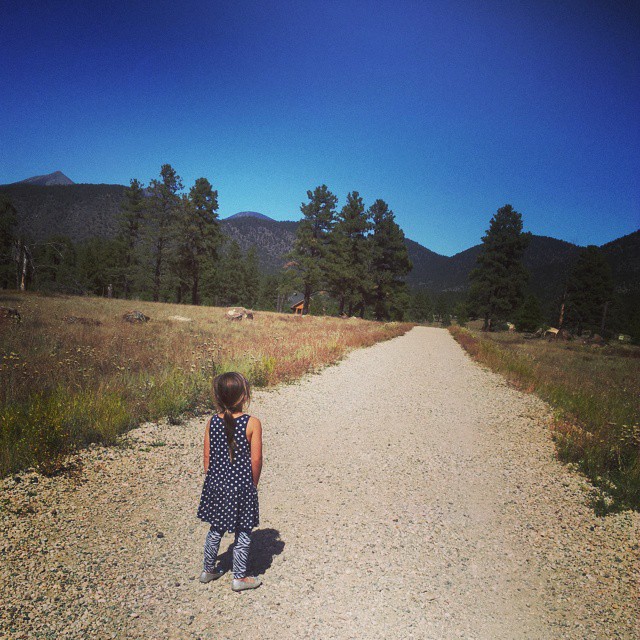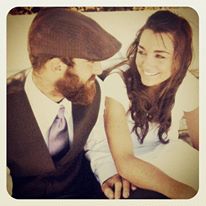
Perhaps the picture I painted with my last blog was a bit idealistic. I may have led you to believe that we live in an ever-harmonious world of rainbows and unicorns and air-dried stretchy shorts. This is not the case. While I have always loved my husband tremendously, my affection for endurance athletics hasn’t had the same unconditional history.
There was a time-not too long ago-that I resented anything related to endurance athletics. The mention of a two hour run made me cringe. The sight of stretchy leotard and sound of clicking shoes on linoleum- both foreshadowing an extensive period of husband absenteeism-made my blood boil. Finding goggles and a towel placed neatly on the kitchen table in anticipation for a long, tempo swim brought tears to my eyes.
Yes, there was a time that I felt my companionship was secondary to my husband’s passion for endurance athletics. And it made me really, really mad.
I was just out of graduate school while my husband was completing his Bachelor’s degree. I was finishing my thesis and working as a college professor while moonlighting as a waitress to make ends meet. My husband was taking rigorously demanding pre-med science classes, working as a Chemistry tutor and training for races in order to supplement our income (for fun things like diapers and food). These factors, enmeshed with caring for a fearlessly adventurous two year old, created the “perfect storm” for resentment and animosity. But instead of seeing the situation objectively, I blamed all of our problems on the sport.
“If you would just spend less time on the bike, you would have more time for us,” I brooded on repeat, my thoughts a broken record playing incessantly through my mind. My awe for his dedication and perseverance was eroded by the resentment of feeling overshadowed by running, swimming and biking. I no longer saw a self-motivated, passionate man but instead viewed my husband as an obsessive, selfish extremist.
“But I’m doing this for us. This is the only way I know to make a living right now,” he would respond whenever I confronted him on the subject. Our conversations were circular parades that never led anywhere.
I fantasized about burning his running shoes. I created elaborate scenarios where his Speedo and goggles would mysteriously fall into the Hawaiian ocean, never to be found again. I dreamed that his bike was stolen from its sacred perch in our already-cramped living room (because we all know that bikes don’t live outside.) I thought about all the ways the sport was sabotaging our relationship, but I never reflected on how my deteriorating attitude towards it-and my husband-was doing the same.
Likewise, my husband resented me for failing to understand that his training was an investment for our family’s future and a contribution to our income. He didn’t understand how I could view his hours away as leisure time to himself rather than gritty, hard work or an actual job. He didn’t want to be home because when he was, I was angry and spiteful. He buried himself in his studies and training, and I found further justification in my feelings of rage.
This is where I believe many relationships end between endurance athletes and “normal” people. We were both so stuck in justifying why the other was wrong that it obscured our ability to recognize our own contribution to the problem. Instead of communicating our frustrations, we continued to blame each other for all the reasons our relationship was faltering. We both felt under-appreciated and neglected, but neither of us could recognize our part in the problem.
We sat down one night and laid it all on the table, telling one another as calmly as possible about our concerns, frustrations and needs. (Okay, maybe it wasn’t completely calm. There may have been sobbing and fists banging on wooden tables with undertones of ultimatums.) Eventually we decided that in order for our relationship to work, there needed to be collaboration and compromise on both sides without either of us feeling as though we were giving up something intrinsically important. We needed to show appreciation for one another more overtly. We needed to make an effort to see our situation with empathy and understanding rather than hostility and blame. We needed to make time for ‘us’, even if that meant a twenty minute evening walk, a Food Network rerun or a quick family beach trip between classes.
We knew we loved each other- and Harper- too much to throw it all away.
I made a concerted effort to become more involved in his athletic pursuits. We made training a family event. I began riding a beach cruiser beside him on shorter-volume runs with our daughter happily perched in her bike seat. I read Running with the Buffaloes and watched marathon videos, my heart softening as I watched my stoic husband cry like a child as Ryan Hall finished Boston in 2:04. I accompanied him to the pool, putting my competitive swimming years to use by constructively critiquing his stroke and form. (It needed help. Desperately.)
Likewise, my husband made an effort to be more flexible with his training schedule, offering to let me sleep in and encouraging me to go on Girls’ Nights (or weekends) when I needed a break. He made time for me to pursue my dream of being a famous columnist (still working on that) by carving out time each day for me to write. He sought balance between his school, his family and his training.
Most importantly, we both began expressing sincere appreciation for each others’ sacrifices, even if it was a simple “thanks for waking up with Harper so I could run” or “I’m so proud of how you were able to train so hard and still get an A on your exam.”
Overall, we began to see each others’ fears, needs, passions and pursuits as equally valid and important. We started to communicate more openly when things were going right (and wrong) without placing blame on each other. We learned that relationships (especially those that involve endurance athletics) require just as much consistent work, planning, care and progression as training does.
The truth is that endurance athletics can be a very self-absorbed, selfish hobby or career, but it can also invite another person in the relationship to be equally selfish and self-pitying. On the other hand, it has the potential to provide relationships with feelings of unity, triumph and satisfaction (and in some cases a pay check). As I mentioned in my previous blog, some of my favorite family memories are found in the pride and excitement of watching my husband race, and I wouldn’t trade those experiences for a bigger house or more free time (although I wouldn’t mind some carpet or a dishwasher.)
It is such a delicate task to balance dedication and moderation, passion and restraint. We are definitely still learning as we go, but having come from the place we did, I’m so excited about where we’re headed.
